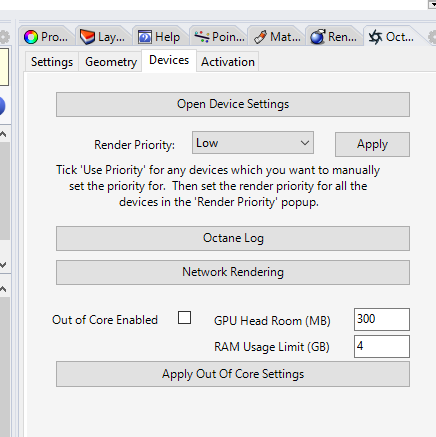
Unless you have a subscription license, you need to upgrade your version 3 licenses to version 4. This upgrade is free, and can be done in four steps:
This OctaneRender® 4 feature is supported via the Out Of Core settings on the CUDA® Devices tab.

Figure 1: CUDA® Devices tab
You can access the individual graphics card control by clicking the Open Device Settings button.
AI Denoiser
You can access the OctaneRender® 4 Spectral and Volumetric Denoisers in the plugin by clicking on Settings Tree, then clicking on Imager, followed by clicking on Enable Denoising. We recommend disabling Denoise Volumes, and enabling Denoise On Completion. To view the denoised pass, click on Denoised Beauty from the OctaneRender Viewport toolbar.
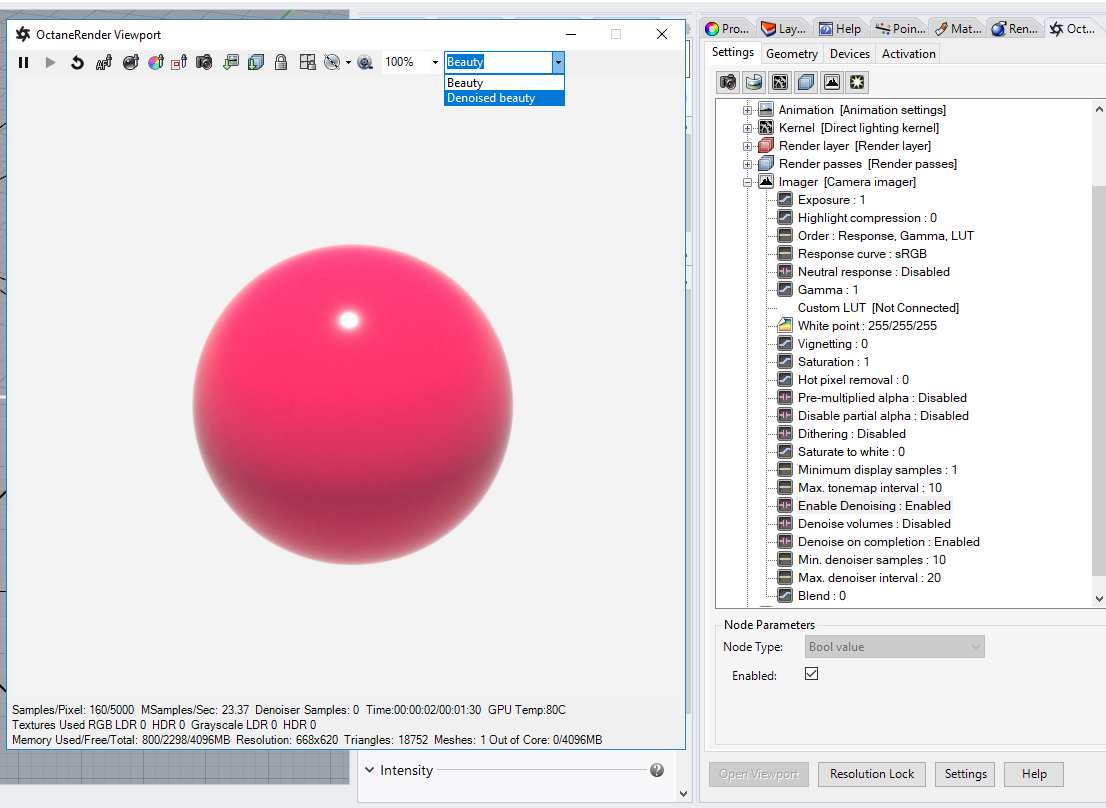
Figure 2: OctaneRender Viewport
AI Light
You can access the new OctaneRender® 4 AI Light settings by clicking on Settings Tree, and then clicking on Kernel. Refer to the AI Light topic of the Standalone Edition manual for more details.
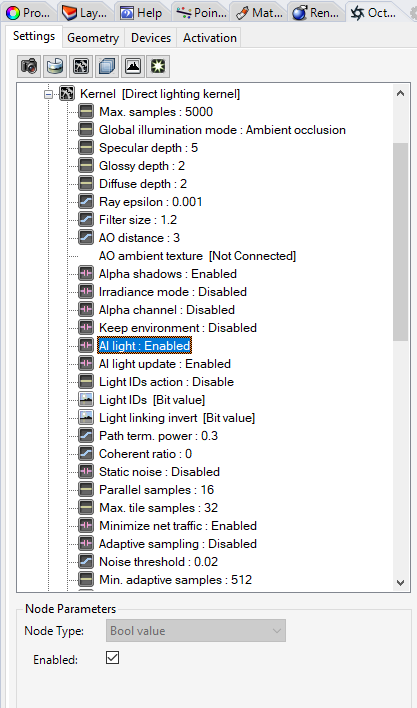
Figure 3: AI Light
This is not supported by the Rhinoceros® plugin, but the Light ID and Light Linking Invert pins are in the Kernel node for future use.
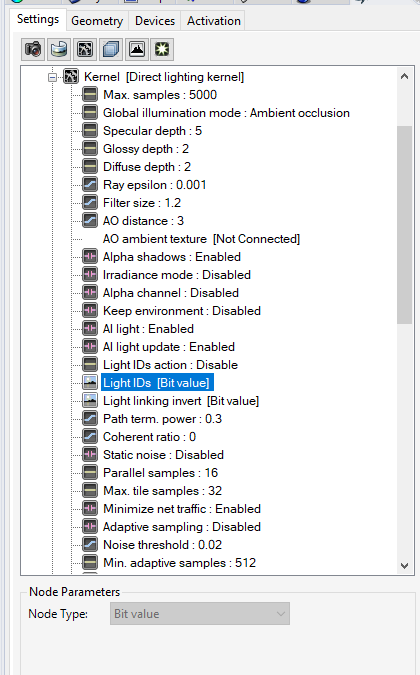
Figure 5: Light IDs
This is a new Environment type in the Settings Tree. This won't apply to most Rhino scenes. Refer to the Planetary Environment topic in the Standalone Edition manual for more details on this Environment.
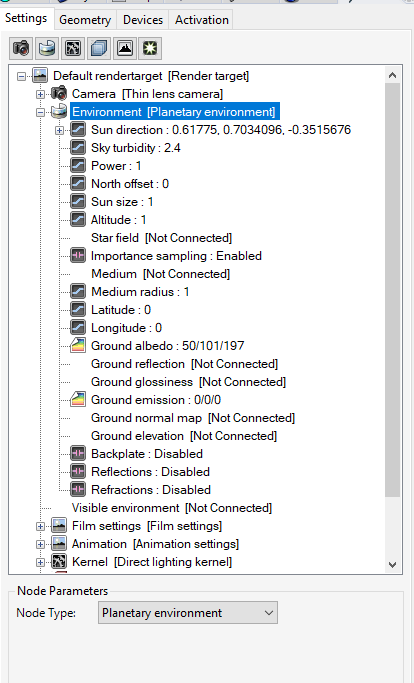
Figure 6: Planetary Environment
This is a new MaterialThe representation of the surface or volume properties of an object. type available in the MaterialsA set of attributes or parameters that describe surface characteristics. tab. Refer to the Universal Material topic of the Standalone Edition manual for additional information on this material type.
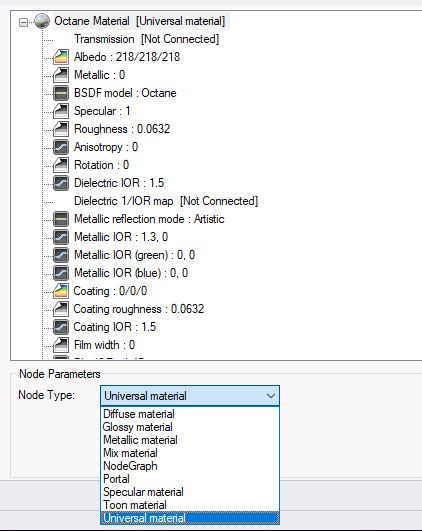
Figure 7: Universal Material
Note: UDIM TexturesTextures are used to add details to a surface. Textures can be procedural or imported raster files. and Texture Compression are not supported by the Rhinoceros® plugin.